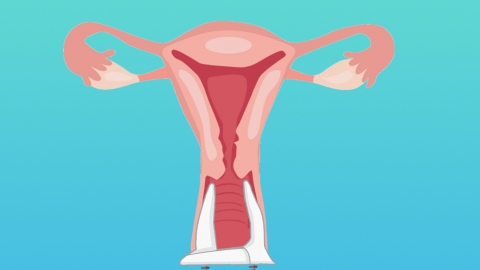What are the symptoms of uterine perforation?
Under normal circumstances, symptoms of uterine perforation may include sudden severe lower abdominal pain, abnormal vaginal bleeding, persistent fever, nausea and vomiting, and hemorrhagic shock. Patients are advised to immediately stop any intrauterine procedures and promptly seek medical attention at a hospital, where a professional physician can assess the situation and provide emergency treatment. A detailed analysis follows:
1. Sudden Severe Lower Abdominal Pain
When uterine perforation occurs, patients typically experience sudden tearing or knife-like severe pain in the lower abdomen. This pain often starts without warning and is intense enough to prevent the patient from standing upright or lying flat. The pain may radiate to the lumbar and sacral regions, perineum, and inner thighs. Pressing on the lower abdomen significantly intensifies the pain, and some patients may also exhibit abdominal muscle tension.
2. Abnormal Vaginal Bleeding
After injury to the uterine wall, rupture of blood vessels leads to abnormal vaginal bleeding. The blood is often bright red, though it may appear dark red if it remains in the uterine cavity for some time. The amount of bleeding varies among individuals and may range from light spotting to heavy bleeding, even similar to menstrual flow.

3. Persistent Fever
When uterine perforation leads to pelvic infection, patients may develop a fever. Generally, body temperature exceeds 38°C and is often persistent. It may also be accompanied by systemic discomfort such as chills, headache, and fatigue. If the infection is not promptly controlled, fever may recur or even continue to rise.
4. Nausea and Vomiting
After uterine perforation, fluid or blood may accumulate in the abdominal cavity, which can irritate the peritoneum and cause gastrointestinal symptoms, among which nausea and vomiting are common. The vomit typically consists of gastric contents, and the frequency and severity of vomiting vary depending on individual differences and the severity of the condition. Some patients may also experience bloating and loss of appetite.
5. Hemorrhagic Shock
In severe cases of uterine perforation, especially when large blood vessels are damaged, massive bleeding may occur. If the bleeding cannot be promptly controlled, patients may develop symptoms of hemorrhagic shock. These include pallor, cold and clammy extremities, rapid and weak pulse, decreased blood pressure, reduced urine output, and altered consciousness. Without timely rescue, it may endanger life.
In daily life, improper intrauterine procedures should be avoided. If procedures such as abortion or intrauterine device (IUD) insertion are necessary, they should be performed at正规 medical institutions to reduce the risk of uterine perforation.









